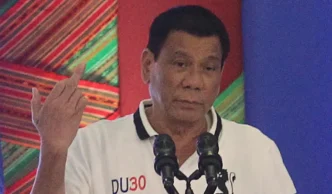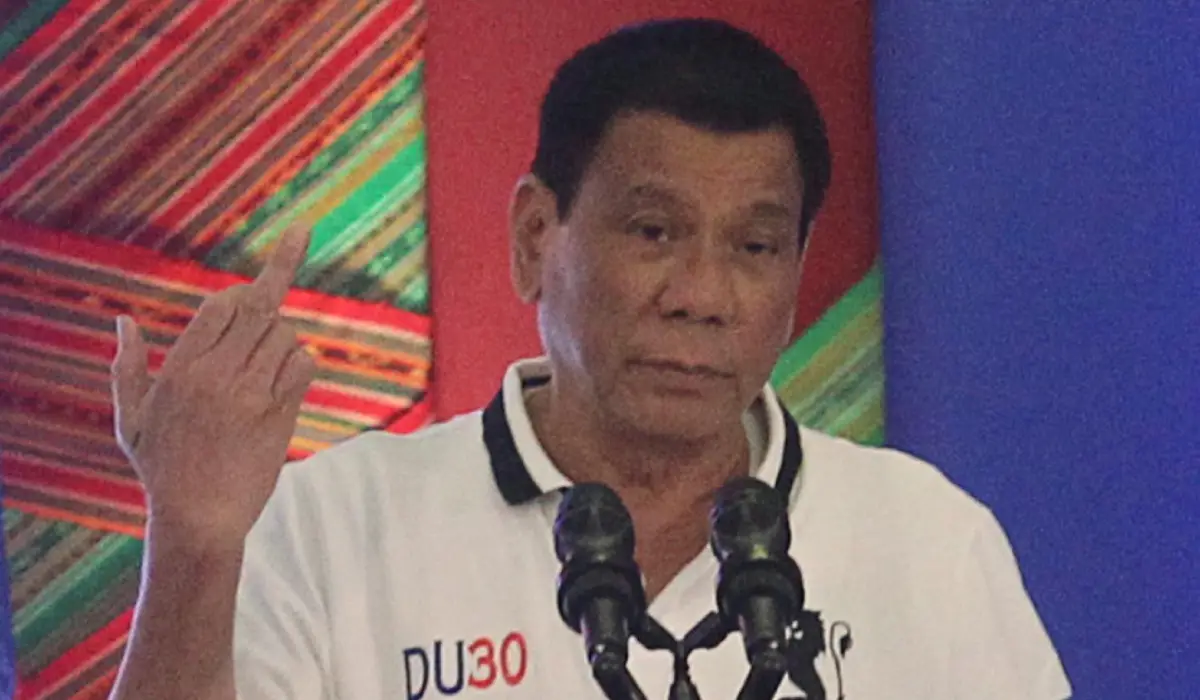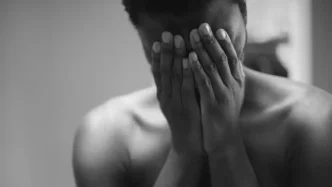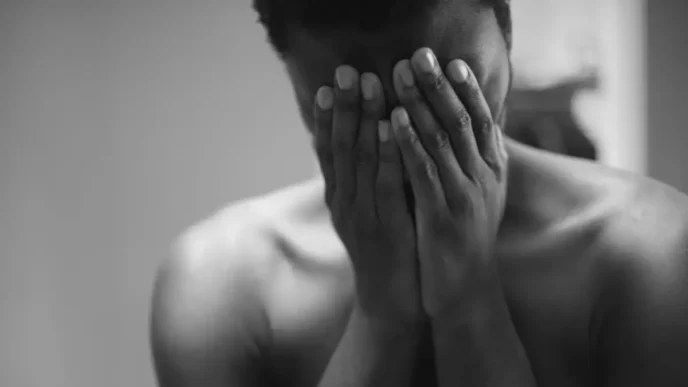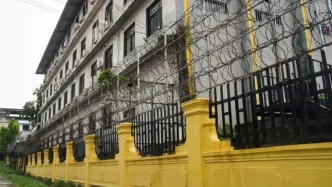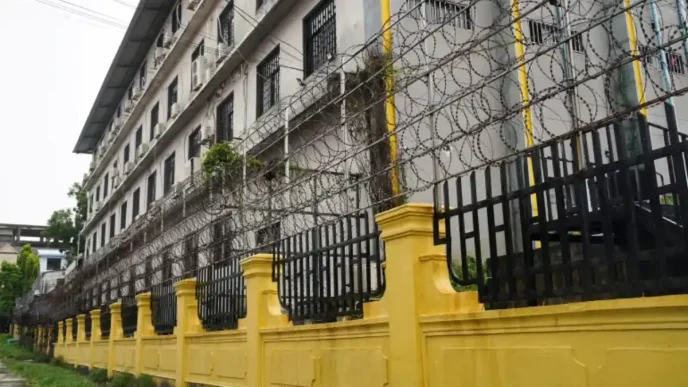The political landscape of the Philippines remains deeply scarred by the era of “Dutertismo,” a term encapsulating the hardline policies and controversial leadership of former President Rodrigo Duterte. A decade after his rise to power, the nation grapples with a legacy of impunity, marked by extrajudicial killings and a polarized political sphere, while new leadership struggles to navigate both domestic tensions and geopolitical challenges in the South China Sea. As Senate President Francis Escudero takes the oath to lead amid debates over Vice President Sara Duterte’s potential trial, questions loom over whether the Philippines can move beyond the shadow of Dutertismo or if its divisive impact will endure.
A Decade of Impunity: The Duterte Doctrine
Rodrigo Duterte’s presidency, which began in 2016, was defined by a relentless war on drugs that saw thousands killed in police operations and vigilante actions. Human rights groups estimate over 30,000 deaths, many undocumented, with little accountability for state forces. The International Criminal Court (ICC) continues to investigate these alleged crimes against humanity, though the Philippine government has resisted cooperation. Critics argue that this culture of impunity—where extrajudicial actions faced minimal repercussions—has eroded trust in institutions.
“The war on drugs was less about justice and more about fear” said a Manila-based human rights lawyer, speaking on condition of anonymity due to safety concerns. “It normalized violence as a solution, and we’re still living with that mindset.”
Beyond the drug war, Duterte’s tenure saw crackdowns on dissent, with journalists and activists often targeted. The closure of ABS-CBN, a major media network, in 2020 symbolized the administration’s intolerance for criticism. While Duterte’s supporters credit him with reducing crime and asserting national sovereignty—particularly in disputes with China over the South China Sea—opponents warn that his methods undermined democratic norms. This dichotomy continues to fuel political debates, as factions aligned with Duterte’s family maintain significant influence.
Senate Leadership and the Duterte Trial: A Political Flashpoint
The recent swearing-in of Senate President Francis Escudero marks a pivotal moment in the Philippines’ ongoing political saga. Escudero, a seasoned politician, steps into a role fraught with tension as debates intensify over a potential trial of Vice President Sara Duterte, Rodrigo Duterte’s daughter. Allegations against her include misuse of public funds, though no formal charges have been confirmed. If pursued, the trial could reignite divisions between Duterte loyalists and reformist factions seeking accountability.
Escudero has pledged to uphold impartiality, stating in a recent address, “The Senate will be guided by law, not by personal or political loyalties.” Yet, analysts suggest his leadership will be tested by the deep-rooted alliances and enmities that define Philippine politics. A trial of Sara Duterte could either signal a break from impunity or plunge the nation into further instability, especially if perceived as politically motivated.
Public sentiment, as gauged through social media platforms, reflects this divide. Many Filipinos express exhaustion with dynastic politics, while others view the Duterte family as defenders of national interests. The outcome of this political battle may shape the trajectory of governance in the coming years, with implications for how impunity and accountability are addressed.
On the Edge of Hope: Life on the South China Sea Frontline
While domestic politics dominate headlines, the Philippines faces external pressures that compound its challenges. In the South China Sea, Filipino fishermen and coastal communities live on what has become a quiet frontline in a geopolitical standoff with China. The disputed waters, rich in resources and strategic value, have seen escalating tensions, with Philippine vessels often harassed by Chinese coast guard ships.
In remote outposts like Thitu Island (locally known as Pag-asa), residents endure isolation and uncertainty. “We just want to fish in peace” said a local boatman, who requested anonymity due to fear of retaliation. “But every day, we see their ships. It feels like we’re pawns in a bigger game.”
The Duterte administration’s approach to China was notably conciliatory, prioritizing economic ties over territorial assertions. This stance drew criticism from nationalists who accused Duterte of capitulating to Beijing. Under President Ferdinand Marcos Jr., the Philippines has taken a firmer position, aligning more closely with the United States and other allies to counter Chinese influence. However, this shift has not translated into immediate security for frontline communities, who continue to bear the brunt of the conflict.
Recent data from the Asia Maritime Transparency Initiative highlights a surge in Chinese vessel incursions, with over 100 incidents reported near Philippine waters in 2024 alone. For a nation already strained by internal divisions, the South China Sea issue adds another layer of complexity to the legacy of Dutertismo—a legacy that prioritized short-term stability over long-term sovereignty, according to some analysts.
Economic and Social Fallout: A Nation Divided
The economic ramifications of Duterte’s policies remain a point of contention. While infrastructure projects under his “Build, Build, Build” program aimed to modernize the country, critics argue that corruption and mismanagement inflated costs. A 2023 audit revealed irregularities in projects worth billions of pesos, equivalent to millions in USD (specific figures pending confirmation due to fluctuating exchange rates as of May 24, 2025). For instance, a major railway project saw costs balloon from an initial estimate of 50 billion Philippine Pesos (approximately US$850 million) to over 80 billion Philippine Pesos (approximately US$1.36 billion), raising questions about transparency.
Socially, the Philippines remains polarized. Urban centers like Manila and Cebu exhibit stark contrasts between Duterte loyalists, who value his strongman tactics, and progressive groups advocating for human rights and institutional reform. In rural areas, where poverty rates hover around 20% according to World Bank data, political allegiance often hinges on immediate survival rather than ideological debates. This divide complicates efforts to forge a unified path forward.
Education and healthcare, already underfunded, have also suffered long-term neglect amid political crises. Activists point to a generation of youth growing up in a climate of fear and mistrust, a direct consequence of the impunity that defined Dutertismo. Addressing these systemic issues will require more than political will—it demands a cultural reckoning with the past.
Looking Ahead: Can the Philippines Break Free?
As the Philippines navigates the aftermath of Dutertismo, the dual challenges of domestic accountability and external threats loom large. Senate President Escudero’s leadership will be a litmus test for whether the nation can prioritize justice over political expediency. Meanwhile, communities on the South China Sea frontline await tangible support, caught between national rhetoric and harsh realities.
The specter of impunity continues to haunt Philippine society, with unresolved cases of extrajudicial killings and lingering questions about the Duterte family’s influence. If Sara Duterte’s potential trial proceeds, it could either mark a turning point or deepen existing fractures. For now, Filipinos watch and wait, hoping for a future where governance serves the many rather than the few.
Amid these uncertainties, small acts of resilience offer glimmers of hope. Fishermen in the South China Sea continue their daily voyages, defying intimidation, while activists in urban centers persist in their calls for justice. Whether these efforts can coalesce into lasting change remains an open question—one that will define the Philippines for years to come.

